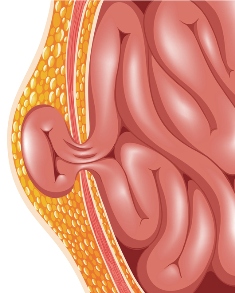The Relationship Between Anxiety and Acid Reflux
Acid reflux, also known as heartburn– that horrible burning feeling in the center of your chest – can has many physical and emotional causes. Obesity, age, eating habits and a history of hiatal hernia can cause acid reflux. But did you know that anxiety can also contribute to the condition? Being stressed or anxious causes an increase in stomach acid, which in turn can trigger acid reflux.
Understanding Acid Reflux
The stomach constantly produces acid to break down foods. Acid reflux occurs when the acid produced in the stomach reaches the esophagus. The esophagus connects to the entrance of the stomach, where a muscular ring (called the lower esophageal sphincter, or LES), opens to let in food.
The LES should close immediately after the food enters the stomach, but when that muscular ring malfunctions, the stomach acid can enter the esophagus, causing that familiar burning pain. Physicians diagnose people who experience heartburn more than twice a week with gastroesophageal reflux disease (GERD).
The Anxiety Connection
When people are stressed or anxious, they often feel those emotions in their stomachs. Receiving bad news, worrying about finances or a loved one, even watching the evening news can cause the acid production in the stomach to ramp up, because emotions impact several aspects of the digestive system.
- Pressure – Stress doesn’t just increase a person’s blood pressure; it also causes the gastric muscles to contract. This pushes the contents of the stomach along with the stomach acids toward the LES. All that churning sometimes leads to reflux.
- Acid overproduction – When the brain struggles to cope with stress, it has less energy left to regulate body systems. This can cause some parts of the digestive system to shut down and others to go into overdrive. Many people’s stomachs produce more acid when they’re anxious and this can cause them to experience heartburn.
- Digestive disturbances – Anxiety triggers the same hormones that regulate the digestive system. Stress throws the system out of balance. Food moves more slowly through the system and the body can’t absorb key nutrients.
A Vicious Cycle
Heartburn hurts, and pain causes stress. Patients with acid reflux may be reluctant to eat properly due to throat discomfort. They don’t eat to avoid triggering more acid overflow into the esophagus. Sleeping in a flat position can also allow acid to flow past the LES, with the discomfort of heartburn causing sleep disturbances.
Stop Heartburn for Good
Some people are able to successfully treat GERD with lifestyle and diet changes or medications. For many people, however, these changes don’t stop reflux, they just lessen the symptoms. Acid reflux surgery can stop GERD for good by correcting the problem at its cause—the weakened lower esophageal sphincter. Dr. Preeti Malladi is a skilled surgeon who can help you live every day without the pain of acid reflux. Get in touch to schedule an appointment today.







